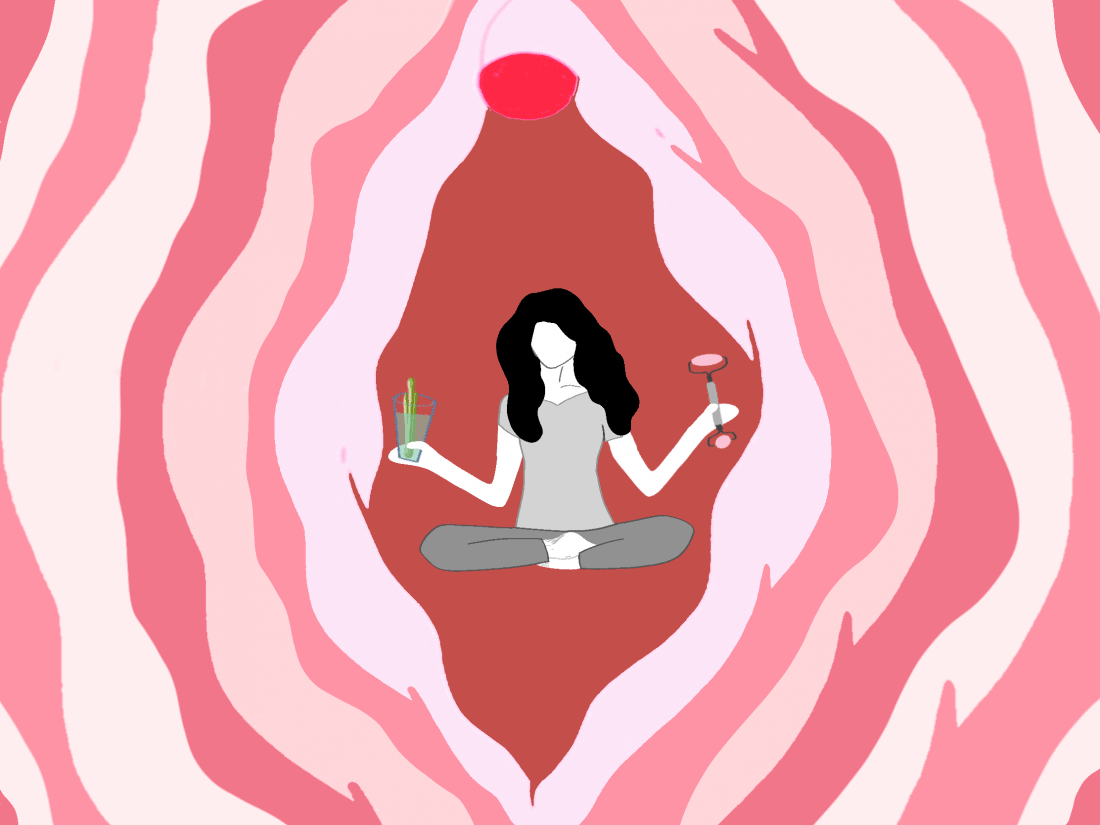
In the past decade, wellness brands have altered our notion of health and have given power to the idea that we have some kind of control over our bodies. Unfortunately, this line of thinking can and does have radical consequences.
While our diet and lifestyle can have a major influence on our health, much of that is quite limited. We can’t change back the clocks on aging or avoid all disease by sprinkling a little turmeric into our morning smoothie or switching to an extremely restrictive routine of diet and meditation.
Biology is complex and it is clear that we don’t grasp even a basic understanding of it.
Chemicals are bad, organic is good, go raw vegan! No wait, your body works best when you hit ketosis. Avoid the flu shot, no, hell, avoid all vaccines — remember rule number one, chemicals are bad. Use this rose quartz roller ball for those bags under your eyes, dry brush your skin to release toxins and take this elderberry syrup to avoid that cold that’s going around.
Bad science is rampant in our oversaturated culture, and health pseudoscience appears to be king of this domain. Instagram seems to cultivate this trend as it is saturated with holistic health microbloggers, integrative wellness counselors and truth seekers.
The influence of influencers — whether it is a bona-fide celebrity or some social media guru with 20k followers — is far reaching, unchecked and sometimes quite harmful.
In 2008, Gwyneth Paltrow, who was just coming off an acting hiatus, launched her wellness company Goop. Originally a lifestyle e-news letter, the entity expanded into a holistic megabrand that continues to maintain momentum despite controversies.
Goop has been criticized by scientists, law professors, doctors and watchdogs for its misleading and oftentimes dangerous claims. It sells items ranging from vitamins and supplements to feminine and cosmic health.
Before a 2018 lawsuit, the company sold some pretty bizarre things, including the now-infamous Jade egg, a stone that was said to balance hormones and prevent uterus-related issues if placed inside your vagina. Goop settled the suit for $125,000 and pulled the egg from its e-store.
And despite the on-going controversy, Paltrow’s company reportedly made $250 million that same year as Goop’s influence keeps growing. Netflix announced it was bringing The Goop Lab to its streaming platform — introducing the wellness empire to new potential marks.
The official trailer shows some disturbing topics like energy healing — complete with spiritual exorcisms — and psychic mediums alongside potentially harmful health treatments with misleading wellness claims.
Vocal opponents pointing out dangerous pseudoscience of major marketing campaigns are a positive light in a quagmire of misinformation. But what about the social media platforms and e-businesses of everyday influencers that don’t see the same scrutiny?
It’s the age of hustling, and more people than ever are trying to make a name for themselves or, at the very least, maintain a paycheck. Instagram is rife with people sharing their holistic journey with others, dishing out misguided and dubious advice and sometimes even profiting off of these claims.
Truth fighters are “educating” people on the dangers of vaccines and promoting natural alternatives. People on healing journeys tell their audience biological fallacies — like how we all have cancer cells lurking in us and by balancing our bodies we can cope in toxic environments and curb illnesses. This is complete science fiction.
The error in many of these pseudoscience health claims is a misunderstanding of biology and interpretation of science. There is always a grain of truth — cancer cells are our own cells that have developed mutations, making them “go rogue,” but cancer does not lurk inside us all and we can not fight it through detoxing.
When reading health claims from holistic practitioners and washed up celebrities, it’s best to do so with a heavy dose of skepticism.
—
Erin Matthews/ Opinions Editor
Graphic: Shawna Langer/ Graphics Editor
Leave a Reply